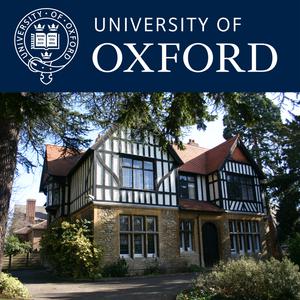
Middle East Centre
Oxford University
The Middle East Centre, founded in 1957 at St Antony’s College is the centre for the interdisciplinary study of the modern Middle East in the University of Oxford. Centre Fellows teach and conduct research in the humanities and social sciences with direct reference to the Arab world, Iran, Israel and Turkey, with particular emphasis on the nineteenth and twentieth centuries. However, during our regular Friday seminar series, attracting a wide audience, our distinguished speakers bring topics to light that touch on contemporary issues.
- 1 hour 12 minutesDefining antisemitism: what is the pointIn this talk, Dr Klug and Professor Lavi explore the following questions, among others: What useful role can definitions play in this controversy? Can the IHRA definition perform this role? Does the JDA give better guidance? Since October 7 2023, the war between Israel and Hamas in Gaza has led to public protests against Israel and demands for an immediate ceasefire. In this connection, controversy over antisemitism on campuses across the globe, including Oxford, has intensified. At the heart of the controversy is the definition of antisemitism published by the International Holocaust Remembrance Alliance (IHRA). The definition has been adopted by numerous states and institutions, including Oxford University. The seminar will raise the following issues, among others: What useful role can definitions play in this controversy? Can the IHRA definition perform this role? Is it, in practice, used in a partisan way? Does the Jerusalem Declaration on Antisemitism (JDA) give better guidance? More fundamentally, can a clear line be drawn between antisemitic and non-antisemitic critique of Israel, or is there a deep ambiguity in the phenomenon itself?19 December 2024, 10:48 am
- 51 minutes 47 secondsRegional dimensions of the Gaza crisis, and the Arab role in the UN Security CouncilMouin Rabbani and Hasmik Egian discuss the impact the crisis in Gaza has had on the Arab world, with a particular focus on the UN Security Council. Mouin Rabbani, Co-Editor of Jadaliyya, examines the extent to which regional dynamics played a role in the 7 October 2023 attacks, the position of Hamas within the coalition known as the Axis of Resistance, and how the Gaza crisis has influenced the region’s politics during the past year. Hasmik Egian, former Director of the UN Security Council Affairs Division, explores the role played by Arab States on the UN Security Council during their terms as non-permanent Council members, and what impact they may have had on issues related to the Middle East.19 November 2024, 11:38 am
- 49 minutes 56 secondsFrom the Cradle to the Street: Family and the 1979 Revolution in IranProfessor Naghmeh Sohrabi, Charles (Corky) Goodman Professor of Middle East History and Director for Research at the Crown Center for Middle East Studies, Brandeis University, describes the role of the family in the 1979 Revolution in Iran.31 October 2024, 3:32 pm
- 48 minutes 30 secondsWhat Gazans Think Before and After October 7thProfessor Amaney A. Jamal discusses findings from surveys in Gaza and the West Bank, as the 46th Annual George Antonius Memorial Lecture. Guest Speaker: Professor Amaney A. Jamal (Dean of Princeton School of Public and International Affairs, University of Princeton) Chair: Professor Eugene Rogan (University of Oxford)26 June 2024, 3:06 pm
- 49 minutes 18 secondsReflections on Tunisian Women's Continued Fight for Respect, Dignity and Rights: Focus on Women in the Labour MovementMEC Women's Rights Research Seminar delivered by Dr Heba El-Shazli (George Mason University) Chaired by Dr Maryam Alemzadeh (St Antony's College) The seminar was delivered on Tuesday 7th May14 May 2024, 9:58 am
- 55 minutes 51 secondsWebs of oppression’ in everyday organizing in Palestine: An Intersectional Feminist AnalysisThis talk delves into the multifaceted challenges Palestinian women activists face, revealing how intersecting oppressions within a settler-colonized society shape their organizing efforts and experiences, challenging singular analyses of patriarchy. How can we understand the multiple, intersecting webs of oppression that Palestinian women activists face in their everyday organizing? The talk is going to illuminates the context and complexity of the lived experiences of women activists in Palestine, aiming to contribute to feminist perspectives on organizing and how activists’ daily practices and interactions ‘inhabit’ institutions, creating, maintaining and transforming them. The analysis exposes a ‘simultaneity of oppressions’ which highlights the challenges faced by Palestinian women attempting to organize to challenge the social structure, within their quasi-state, settler-colonized context. The talk aims to uncover multiple intersecting inequalities produced by dominant institutional and societal structures, yet experienced differently by women activists, in an oppressed, colonized setting. This distinctive political context, aligned with the collaborative security setting with the occupier, elucidates how violations of the quasi-state, colonizer and other social structures like patriarchy and family manifest and intersect institutionally to violate and undermine women. Dr. Nazzal challenges the singular monolithic analysis of patriarchy, revealing how different patriarchal positions towards women expose different modes of oppression, while serving at times as a protective, supportive system.7 March 2024, 4:03 pm
- 47 minutes 47 secondsThe Gender Effect in Intra-Party Meritocracy (with Rabia Kutlu)This lecture explores how parliamentary activity affects the candidacy list placements of MPs in closed-list PR systems, particularly focusing on the interaction between gender and candidacy list decisions. While it is generally argued that the parliamentary activities of the MPs will increase their chances for re-election, this link is not straightforward in closed-list PR systems, where the party leaderships dominate the candidate selection processes. The determinants of the centralized candidate selection processes are highly ambiguous, making it hard to understand how accountability works for MPs in such settings. Furthermore, existing research pays little attention to how politicians' gender interacts with these processes. This article aims to answer these questions by analyzing the determinants of candidacy list placements using a novel dataset containing over 200,000 parliamentary speeches in Turkey. We present evidence that (1) parliamentary activity has a statistically significant positive effect on the candidacy list placement decisions of the party elites, and yet, (2) this effect is conditional upon politicians' gender. We found that speech is associated with higher candidacy list placements in the next election for women politicians while no such effect exists for men. We suggest that this heterogeneity is driven by intra-party competition and the perception that women MPs would be less threatening for existing party leadership positions compared to men MPs. Dr Tugba Bozcaga joined EIS as a lecturer in politics with a specialisation in political methodology. She earned a PhD in political science from Massachusetts Institute of Technology in 2020. Before coming to King's, she was a postdoctoral research fellow at the Middle East Initiative at Harvard University. She is also a faculty fellow at the Association for Analytic Learning about Islam and Muslim Societies (AALIMS). Her research focuses on political economy of development, with a substantive focus on local governance, bureaucracy and state capacity, distributive politics, social welfare, and migration. Her work has been awarded Mancur Olson Best Dissertation Prize in Political Economy (Honorable Mention) from American Political Science Association (APSA). She also received the Best Comparative Policy Paper Award from APSA Public Policy Section, APSA MENA Politics Section Best Paper Award, and APSA Religion and Politics Section Best Paper Award.7 March 2024, 11:23 am
- 58 minutes 21 secondsIs a Binational State Possible After 7 October?In this podcast, Oxford Emeritus Professor Avi Shlaim compares notes with Exeter University Professor Ilan Pappé on the prospects for a binational state in the aftermath of the events of 7 October and the Gaza War.28 February 2024, 12:58 pm
- 1 hour 5 minutesPanel Discussion: Recognizing Palestinian Statehood: European viewsA discussion of European initiatives to recognize the State of Palestine to advance the prospects for a two-state solution. In this episode, former Israeli Ambassador and Director General of the Israeli Ministry of Foreign Affairs Alon Liel speaks with Haizam Amirah-Fernández, Senior Analyst for Mediterranean and Middle Eastern affairs at the Elcano Institute in Madrid, and Chris Doyle, Director of CAABU, the Council for the Advancement of Arab-British Understanding, to consider European initiatives to recognize the State of Palestine to advance the prospects for a two-state solution. The Middle East Centre convenes its Hilary Term 2024 seminar each Monday night in term around the theme of 'Political Options Following the Gaza War.' The aim is to bring primarily Palestinian and Israeli speakers each week to discuss the different options facing policy makers in the aftermath of the 7 October 2023 attacks in Israel and the 2023-2024 War in Gaza. While some in the Israeli government call for continued security control over all Palestinian territories, many in the international community believe Palestinian statehood and the end of occupation the only sustainable course of action. In one session, speakers from Britain, Spain, and Israel will consider European proposals for recognizing Palestinian statehood. However, Palestinian independence is not the only option. Others continue to argue that a binational state, in which Palestinians and Israelis would enjoy citizenship, is the most feasible option, given the fragmentation of the West Bank by Israeli settlements. Yet all recognize that the political environment for substantive change has become far more difficult as a result of the 7 October attack and the Gaza War.19 February 2024, 11:52 am
- 1 hour 5 minutesGenocide and Accountability in Gaza: The Limits and Potential of International LawProf Noura Erakat explores the significance of South Africa's application of the Convention on the Prevention and Punishment of the Crime of Genocide in the Gaza Strip before the International Court of Justice, and the Court's decision to hear the case. The Middle East Centre convenes its Hilary Term 2024 seminar each Monday night in term around the theme of 'Political Options Following the Gaza War.' The aim is to bring primarily Palestinian and Israeli speakers each week to discuss the different options facing policy makers in the aftermath of the 7 October 2023 attacks in Israel and the 2023-2024 War in Gaza. While some in the Israeli government call for continued security control over all Palestinian territories, many in the international community believe Palestinian statehood and the end of occupation the only sustainable course of action. In one session, speakers from Britain, Spain, and Israel will consider European proposals for recognizing Palestinian statehood. However, Palestinian independence is not the only option. Others continue to argue that a binational state, in which Palestinians and Israelis would enjoy citizenship, is the most feasible option, given the fragmentation of the West Bank by Israeli settlements. Yet all recognize that the political environment for substantive change has become far more difficult as a result of the 7 October attack and the Gaza War.14 February 2024, 1:23 pm
- 49 minutes 58 secondsThe Settler Movement, Political Impasses, and BeyondDr Hagar Kotef from SOAS examines the current situation of Israeli settlers both in the West Bank and in the Cabinet to assess the impact of the settler movement in political options following the Gaza War. The Middle East Centre convenes its Hilary Term 2024 seminar each Monday night in term around the theme of ‘Political Options Following the Gaza War.’ The aim is to bring primarily Palestinian and Israeli speakers each week to discuss the different options facing policy makers in the aftermath of the 7 October 2023 attacks in Israel and the 2023-2024 War in Gaza. While some in the Israeli government call for continued security control over all Palestinian territories, many in the international community believe Palestinian statehood and the end of occupation the only sustainable course of action. In one session, speakers from Britain, Spain, and Israel will consider European proposals for recognizing Palestinian statehood. However, Palestinian independence is not the only option. Others continue to argue that a binational state, in which Palestinians and Israelis would enjoy citizenship, is the most feasible option, given the fragmentation of the West Bank by Israeli settlements. Yet all recognize that the political environment for substantive change has become far more difficult as a result of the 7 October attack and the Gaza War.12 February 2024, 12:17 pm
- More Episodes? Get the App
Your feedback is valuable to us. Should you encounter any bugs, glitches, lack of functionality or other problems, please email us on [email protected] or join Moon.FM Telegram Group where you can talk directly to the dev team who are happy to answer any queries.
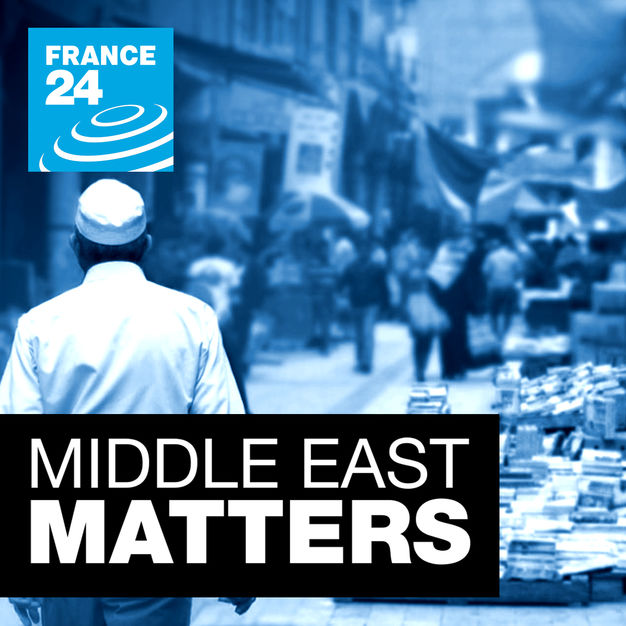 Middle East matters
Middle East matters
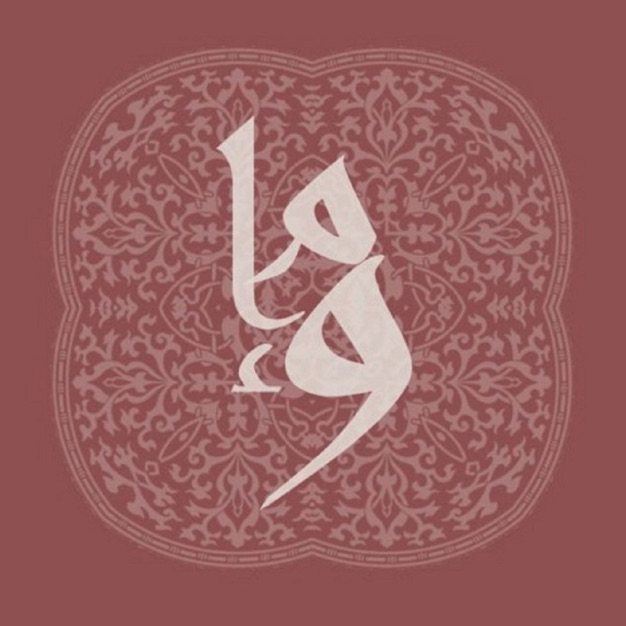 Middle East Weekly
Middle East Weekly
 History of the Modern Middle East
History of the Modern Middle East
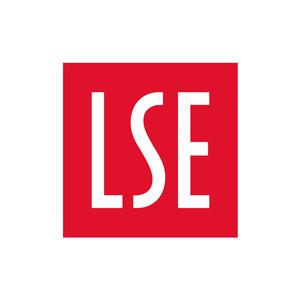 LSE Middle East Centre Podcasts
LSE Middle East Centre Podcasts
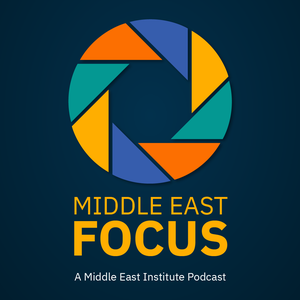 Middle East Focus
Middle East Focus
 Middle East - Audio
Middle East - Audio